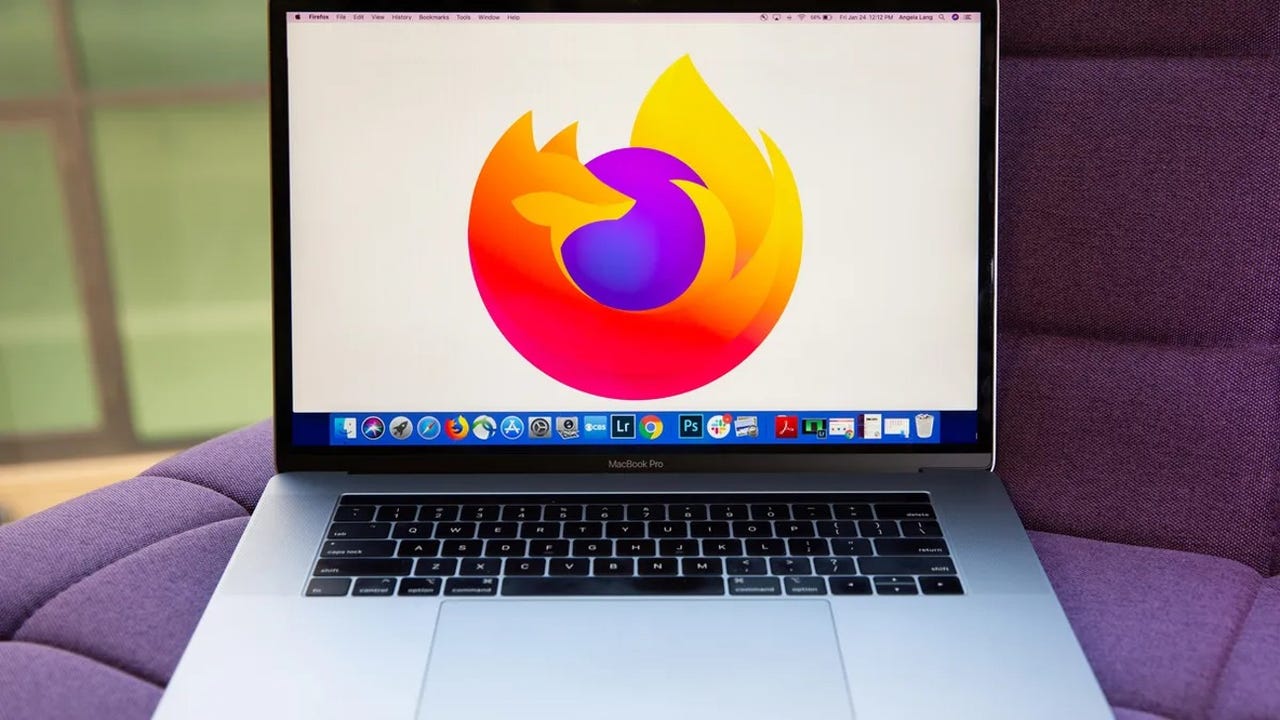































 CNET
CNET Sometimes, developers add features to an application not necessarily to improve performance but rather to remove clutter. By doing so, they improve the user experience and make the tool more pleasant to work with.
One thing that has always bugged me about some browsers is how extensions are accessed and displayed on the toolbar. Pin too many extensions to the interface and it can get very cluttered.
Pin too few extensions to the toolbar and you might find them a challenge to access.
I've experienced both situations and neither is ideal for an efficient workflow or a clean interface.
So, when Mozilla announced the Unified Extensions button for Firefox 109, I was, sight unseen, all in.
Also: Firefox Container Tabs explained, and how to use them
This is a feature every browser should consider added.
The Unified Extensions button replaces that row of Firefox extensions with a button that serves as a drop-down, so you can access all of the extensions you need without having them clutter up the UI.
The Unified Extensions button declutters the Firefox UI.
Image: Jack WallenInstead of having all of your pinned extensions on your toolbar, you have a single button (shaped like a puzzle piece), which you click to reveal your extensions.
One thing to keep in mind is that, unlike a number of other browsers, where you have to worry about pinning tabs to the toolbar to access them, Firefox automatically pins an extension to the toolbar.
Also: The best Google Chrome extensions
The more extensions you add, the more cluttered the interface. With the Unified Extensions button, you install an extension and it automatically appears in the drop-down. It's automatically clean and easy to use.
That's pretty much the gist of the Unified Extensions button.
The Unified Extensions button isn't the only new feature to Firefox 109. The release also includes the following features and updates.
The new Unified Extensions button was made possible by another bit of newness to the browser, which is Manifest Version 3 (MV3). MV3 gives users persistent control over what add-ons can access what web pages. According to Mozilla: "Users are free to grant ongoing access to a website or make a choice per visit. To enable this, MV3 treats host permissions (listed in the extension manifest) as opt-in."
For those who don't know, MV3 was developed by Google to restrict the capabilities of web extensions, especially those designed to monitor, modify, and compute the exchange of information between a web browser and a website. Back in 2019, it was reported that developers were concerned that add blockers would no longer work.
Also: These 3 free Google Chrome extensions can save you time
Most people use Google Chrome as their default browser. But privacy is another matter for the online ad giant.
Read nowSome assumed this was Google's attempt to get around ad blockers, given the company's reliance on advertisements. And several developers of ad blocker extensions proclaimed the deprecation of a specific API would amount to serious problems for ad blockers, antivirus products, parental control enforcement, and privacy-enhancing extensions.
None of those fears really came to fruition, and even though MV3 has been implemented, the ad blockers and other software and extensions are still working fine.
Back to the new features...
Firefox 109 now includes a built-in dictionary for Spanish from Span (es-ES) as well as Spanish from Argentina (es-AR), which can be used in conjunction with the Firefox spellchecker.
Other improvements and additions include:
To get Firefox 109, you'll need to download it for your operating system from the official Firefox download page. If you're a Linux user, you can either use Firefox Nightly, run Firefox from the source, or wait until the new version hits your distribution's standard repository.
Also: How to open websites as apps with Firefox on Linux
I run Firefox Nightly, which is currently on version 110 and gives me a peek at the latest features that may or may not hit the stable version soon. For MacOS and Windows users, the update should be downloaded automatically.
You can check the About Firefox window to see which version you're running. Eventually, however, those two platforms will automatically upgrade Firefox to the latest version.
 Tags chauds:
technologie
Services et logiciels
Tags chauds:
technologie
Services et logiciels